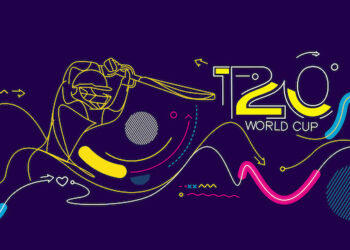In a world steeped in information but torn apart by conflict, translation can help ease the flow of messages that enlighten and bring about change.
Of course, it’s not quite as simple as that. Translation isn’t just about substituting words with others and making them read nicely. It is a special skill that relies on special conditions and subtle skills to work its magic.
The starting point of a good translation is to get at the meaning of the original. How does one do that? The most striking illustration of this may be translating a novel. A diligent translator wouldn’t just plough through a complex work word for word without knowing where it is going. If he or she spends time reading through it – not once, but twice – things tend to go much faster and the result is often far closer to the original.
The texture and nuance of languages differ widely, and sometimes fluctuating between two languages can feel a bit like trying to be both Picasso and Monet, painting the same subject from different perspectives, backgrounds, skill sets and world views. But in reality translation is more like producing the same painting in different media – and where possible, using the same tricks as the original artist. Sometimes you have to make water colours look like oils.
Translation can at times be better than the original. A skilled writer-translator can make the original writer look good by removing repetitions, ambiguity, redundancies and so on, thus streamlining the communication.
If a translator doesn’t possess these qualities and support, vital messages can be lost with an ineffective effort. There are a few situations that have the potential to trip up translators – sometimes with hilarious results, but at other times, a little less so.
Translators who live and work in the language they translate in are less likely to be duped by “false friends” – words that seem to mean what similar-looking words mean in their own language. An English person translating into French might mistakenly use the word préservatif for preservative, but it means condom.
Different cultures use the same words in different ways. (Ag) shame signifies sympathy in Afrikaans, but disapproval to the foreigner we sympathise with.
Less amusing is the potential for getting references with a political flavour wrong. In South Africa, race is very much part of the public discourse, whereas elsewhere this is frowned upon. And where words like ‘coloured’ are used, such as the UK and US, they can have entirely different meanings. Incorrect use can give offence, and that is why home language translators are always a good idea.
Where a direct translation is inadequate or impossible, such as in the case of slang, colloquialisms and proper names, it helps, to try and determine the message behind the original words. The French comic character Asterix has a dog, called Dogmatix. The original name, Idéfix, is a play on idée fixe (fixed idea). Staying true to the central idea behind the name, the translator’s effort was even better than the original, because it also managed to introduce a canine element.
The power of effective communication through translation was demonstrated with great power during the 2013 general elections in ethnically divided Kenya.
The elections, while relatively peaceful, had potential for clashes and irregularities. To help defuse the tension, a mobile communications service offered citizens the opportunity to text in alerts about trouble spots.
This was intended to shine a light where uncertainty reigned previously. However, languages spoken in the rural areas are not well understood centrally, so Translators without Borders stepped in with translations into Swahili and English.
In summary, a core aspect of a good translation is that the translators must be empathic (able to put themselves into the shoes of the creator of the original text) and skilled at using words in ways that will convey the desired message.
With these and other ground rules, translation can be at its most effective.
Françoise Henderson is CEO of Rubric language services.
IMAGE: Translators Without Borders














